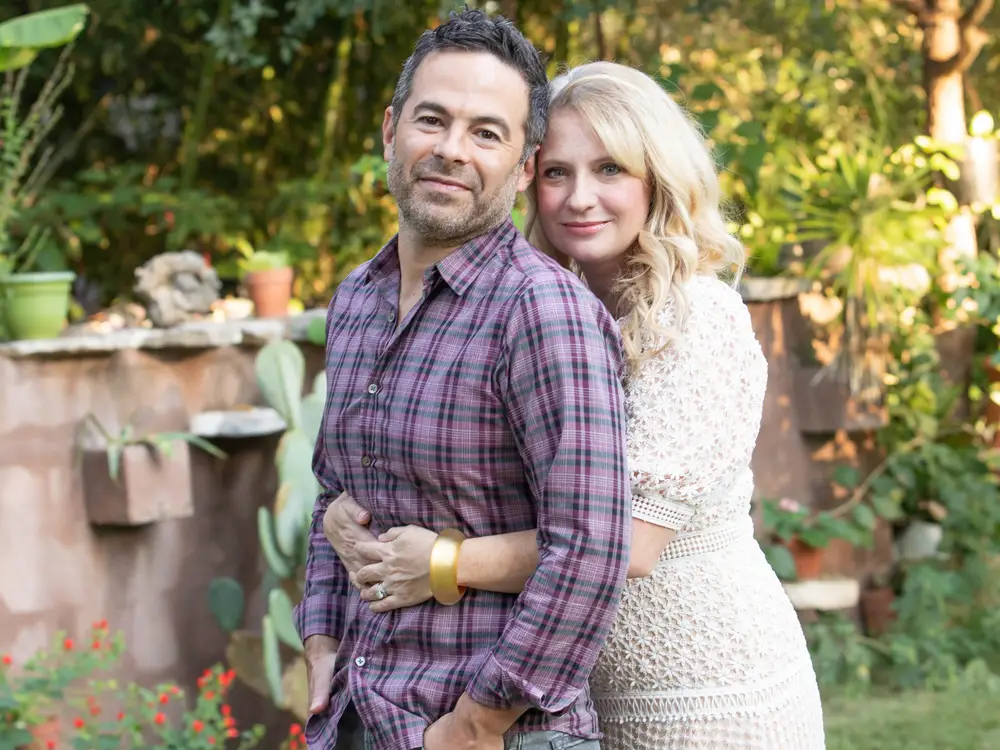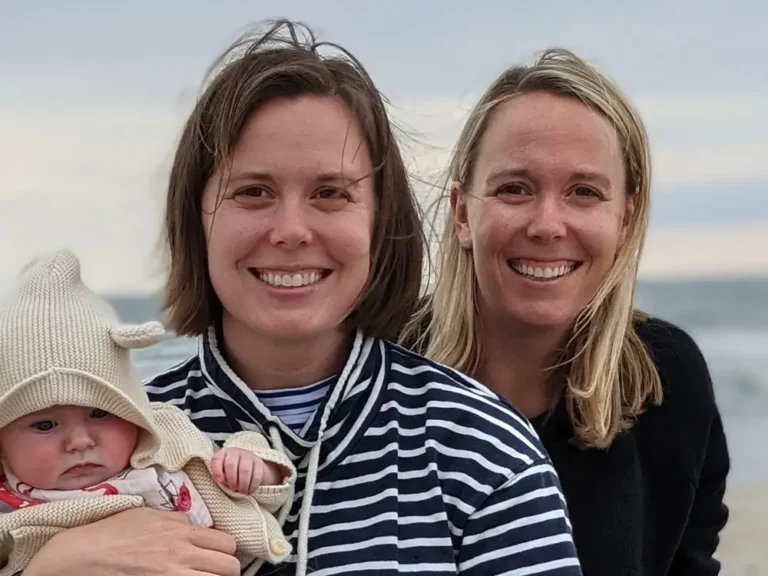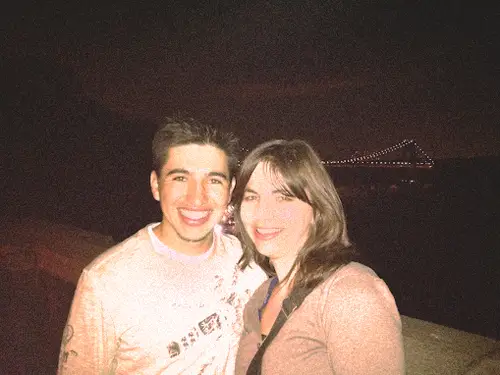My husband and I were in a throuple with someone 16 years younger. Dating someone with such a big age gap caused issues.

The author, right, and her husband, left, entered a throuple together.
My husband and I met in 2014 and tied the knot in June 2016. It’s been a wild ride of a marriage, filled with ups and downs like any typical relationship. We’re empty nesters (I have a grown son from my first marriage), travel when we want to, and enjoy fabulous meals and art along the way.
We’ve always been adventurous and open-minded. Over a year ago, we decided to open our marriage to the possibility of embracing a polyamorous relationship. We didn’t make this decision lightly after having many conversations about our feelings, fears, and expectations. A significant amount of time was spent setting boundaries and rules that we both agreed were absolutely necessary for a healthy poly relationship.
This process was crucial and involved a lot of compromise and understanding. Once we were on the same page, we took the plunge. Putting ourselves out there in the poly dating scene in that fashion was nerve-racking, but we were excited to see where it would lead.
We eventually met someone 16 years younger than us.
Dating as a throuple was easy at first
Eventually, we met a lovely woman we were both interested in, and she felt the same way about us, and thus the romance began. She was in her late 20s, and we were 45.
Like the beginning of any other relationship, we started going on dates — sometimes as a throuple (a term used for three people in a relationship) and other times one-on-one. We wanted to ensure there was ample opportunity to get to know each other together and individually. We wanted the dynamic to click for all of us.
We honestly believed that acceptance of our ethically nonmonogamous (ENM) relationship would be the biggest hurdle we would face. Boy, were we wrong. Because we live in a more accepting city, heads rarely turned in our direction when it was apparent we were all on a date. Fortunately, friends and strangers alike didn’t care at all. They just wanted us to be happy.
We were all deeply committed to making this relationship work, and as we slowly fell for one another, I found joy in seeing my husband so happy cooking for me and our girlfriend. He was equally delighted to see me finally embracing my bisexuality after years of repression.
We ran into problems with our schedule
However, it became clear very early on that our schedules rarely aligned. My husband and I work more traditional hours — Monday through Friday, during daylight hours. Our girlfriend worked primarily evenings and weekends. My husband and I are both taking care of elderly mothers, busy with home upkeep, balance travel schedules, and are responsible pet owners, so it was challenging to find time to be together in a traditional sense.
We quickly realized that our 16-year age difference posed problems as well. She still wanted to go out late in the middle of the week. On a school night? I don’t think so! Bedtime for us usually happened around 10 p.m. because that 6 a.m. alarm would be a rude wake-up call.
To make it work, we had to come to the table and prioritize what was most important. We all cared deeply for one another, but if one party wasn’t going to manage their time so that we could make the relationship work, we were concerned that resentment would develop — and indeed, it did.
We were all about her living a carefree life. Besides, we had been there and done that, and if we could join her, we would. She was younger, had no kids, and deserved to cut loose without us.
Nevertheless, the lack of trust manifested, so we ended our throuple.
We don’t regret getting into the relationship
Like with any new relationship, we had in-depth conversations to sort out our conflicts — being clear and concise in our expectations. We found that open and honest communication was key to resolving issues and maintaining trust. It worked for several months. Until it didn’t anymore.
Despite our best efforts and our deep affection, we realized that sometimes, things don’t align.
It’s a part of life, and it doesn’t mean it can’t work out in the future. It’s a lesson we learned and a part of our ENM journey.






